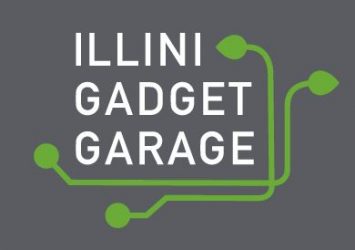Note: This post was written by Illini Gadget Garage staff member, Jarrett Zook
This post continues the discussion of conflict minerals which began in my previous post, “Defining Conflict Minerals.”
In a just and simple world, the Democratic Republic of Congo (DRC) would thrive off possessing such a rich variety of natural resources. Unfortunately, this is not the case and valuable minerals are used to finance conflict and destabilize the DRC. Even though it has taken a bit too long, the rest of the world has begun to think about ways to eliminate conflict minerals from the global supply chain. Governments have begun to pass legislation with the intent to foster responsible sourcing. Additionally, there are industry associations focused on helping manufacturers identify conflict-free sources for minerals and non-profit organizations that shine the spotlight on corporate use of conflict minerals and raise awareness of relevant issues among consumers. Fortunately, the world wide supply chain is responding to external pressures and progress is being made in the war on conflict minerals.
In 2010, the heavily publicized Dodd-Frank Wall Street Reform and Consumer Protection Act was passed. Dodd-Frank is primarily known for bringing about significant changes in financial regulation. However, Section 1502 of the act addresses the trade and use of conflict materials and hopes to make the corporate supply chain more transparent. This legislation introduced requirements for independent third party supply chain traceability audits, and all publicly traded companies must report their mineral sourcing to the public and the U.S. Security and Exchange Commission. More than 70 percent of smelters that produce the 3Ts (tin, tantalum, tungsten) and gold have now passed conflict-free audits. In turn, as these audits are pushed down supply lines, the new regulations will even impact private and foreign companies that are not directly regulated by the SEC. For example, corporations now feel the pressure to only source certified conflict free minerals, and mining operations are increasingly separating themselves from local militia groups. American efforts have helped inspire other governments to pursue similar actions and the EU passed its own conflict minerals regulations a little over a month ago. Like Section 1502 of Dodd-Frank, it aims to improve supply chain diligence. However, the EU legislation does differ in a few ways and applies to minerals that are sourced in regions outside of the DRC as well. The European regulation further differs in that it applies to a more narrowly defined set of companies and fewer downstream purchasers are covered under it.
While current regulations in the arena of conflict minerals are noble in intent, they have not been implemented free of criticism. As there is a large trend in governments slashing budgets, certain regulations that are perceived to be financially burdensome are being targeted. Accordingly, the cost of ensuring compliance with Dodd-Frank 1502 has been heavily scrutinized. This regulation can financially justify itself though. Costs to implement the act have dropped significantly as many innovations and tools are available to issuers and suppliers at no cost. Moreover, many corporations contribute to an audit fund that reduces some of the cost of audits to smelters. Furthermore, these efforts support U.S. national security concerns as they stabilize the region and remove power from warlords. Other arguments surrounding this part of Dodd-Frank revolve around closing existing loopholes. Some parts of Section 1502 are hard to interpret and have resulted in legal grey areas. Companies are required to “conduct a reasonable country of origin inquiry”–what counts as “reasonable” is open to interpretation. As global supply chains are increasingly complex, legislation needs to acknowledge this and make sure that companies investigate to the appropriate extent. As the extent is not clearly defined, companies have some wiggle room in disputing civil penalties.
Dodd-Frank has been a good start in the fight against conflict minerals, but more work needs to be done. Governments around the world need to help fund the construction of infrastructure and occupational training in the DRC’s mining regions. The mining sector has been hit hard by the conflict-free transition and many people’s livelihood no longer exists. Accurately tracing the source of conflict minerals in very important, but in order for it to have meaning it has to be followed by efforts to reduce or eliminate their usage. Under Dodd-Frank companies do not have self-auditing power, but the third parties that audit them are not monitored by a strict set of standards. In further defining what rigors smelters and other areas of the supply chain must undergo to show that they are conflict free, one common metric should be used to accurately access compliance.
Current regulation may still need to go farther, but fortunately there are industry associations and non-governmental organizations committed to the fight against conflict mines. See for example the Conflict Free Sourcing Initiative, Responsible Sourcing Network, and Raise Hope for Congo. Some efforts focus on promoting conflict-free mines in the Eastern DRC region. Some companies have completely stopped sourcing from the region, but this has harmed many miners that are not involved with the warlords. In response, efforts have been made to identify and promote responsibly sourced minerals from the DRC. Other organizations focus on tabulating the progress specific large companies have made on responsibly sourcing conflict minerals. For example see the Enough Project/Raise Hope for Congo Conflict Minerals Company Rankings at http://www.raisehopeforcongo.org/content/conflict-minerals-company-rankings. Some companies are making much greater efforts than others. For instance, Intel was the first company to publicly commit to making a fully conflict-free product with a deadline. On the other end of the spectrum, Nintendo has made no known efforts to trace or audit its supply chain. Unfortunately, the United States is considering abandoning the current regulations on conflict minerals that it presently has in place. This means that activist groups may play an increasingly vital role in informing the public and ensuring responsible sourcing among companies. Raise Hope for Congo conveniently provides a link that suggests ways you can take action.
Of course, another great way to help decrease the demand for conflict minerals is by either repairing or donating the technology that you possess. If you cut down on the amount of tech that you buy, then you will be cutting down on the vast array of minerals that are mined to produce it.

